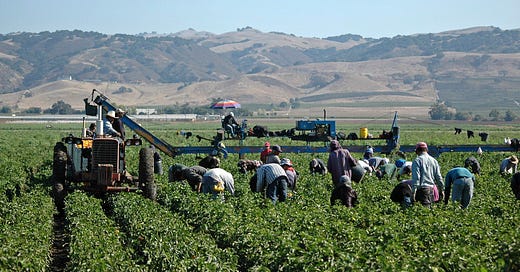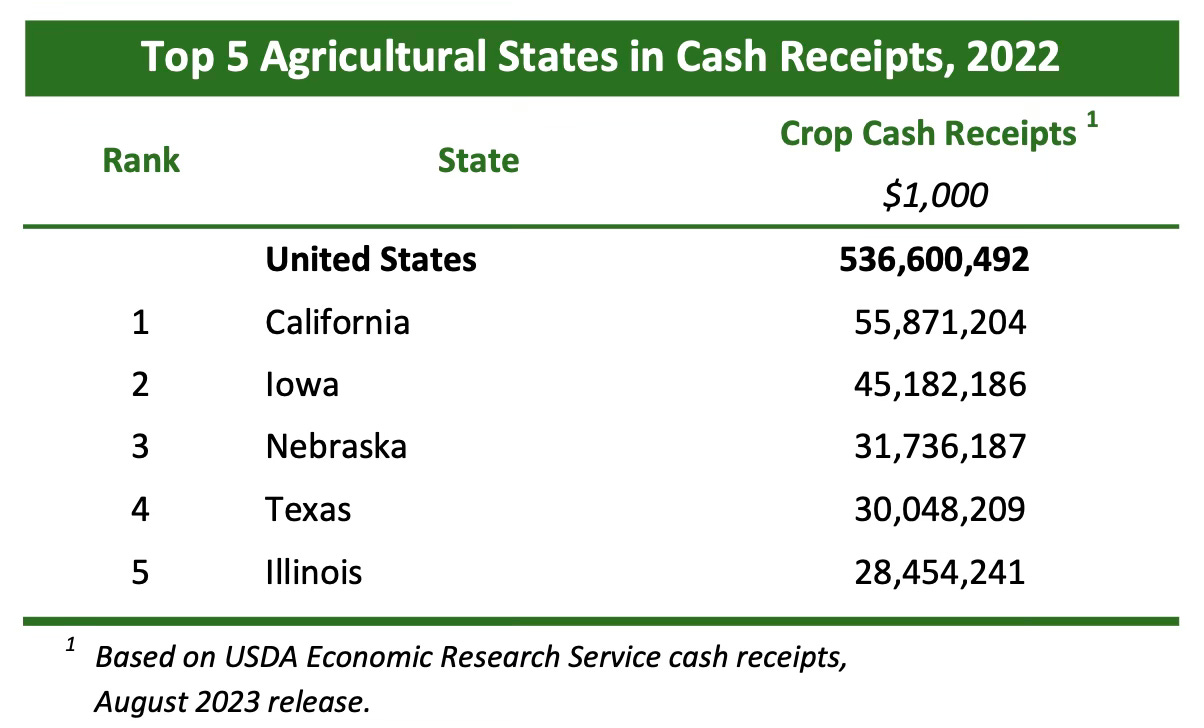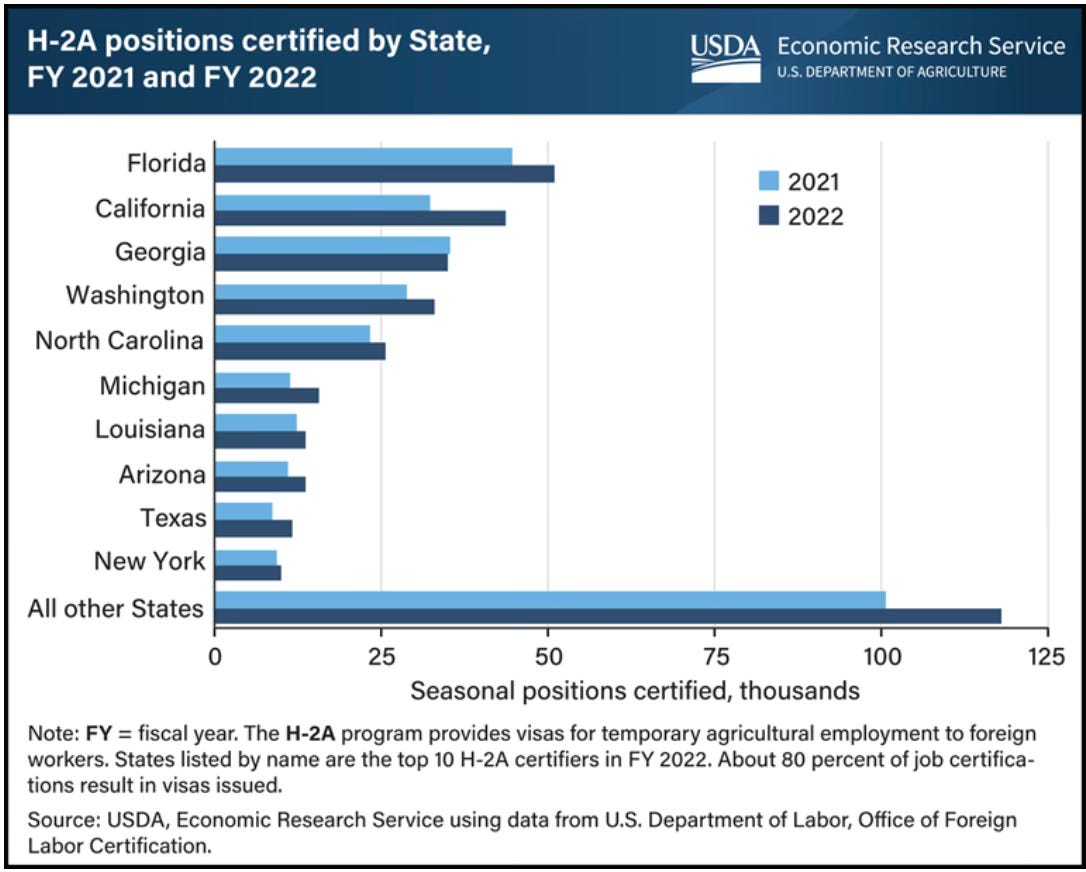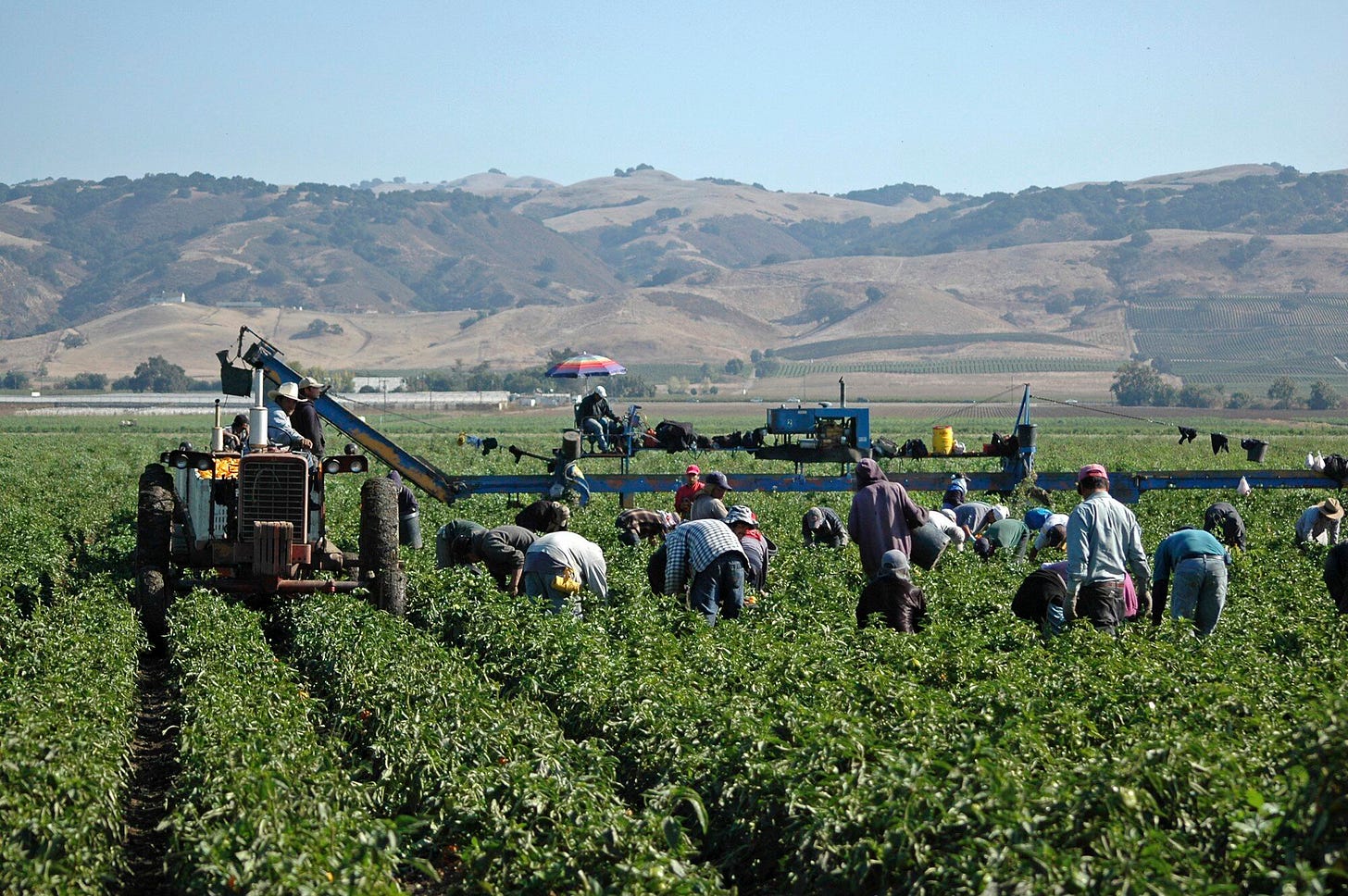Farm work is just one reason why our immigration system is in dire need of reform.
When speaking of farm work I am referring to the seemingly thankless jobs performed by migrants. In 2016, I was hosting a live, one-hour television news special outside Fresno, California. The topic was agriculture and seasonal workers. Fresno is near the north end of California’s central valley.
Despite comprising only one-percent of America’s farmland, the central valley was a major contributor to California’s $56 billion in crop cash receipts in 2022. California is the number one crop producing state in the US, according to California Department of Food and Agriculture.
While some harvesting is now mechanized, there are still crops picked the old-fashioned way: by hand. In order to get an up-close experience at this work I decided to do a little harvesting at a couple of farms. I joined the pickers in the fields.
How did I do? I recommend you watch Kevin Costner in the 2015 film “McFarland, USA.” In the film, Costner plays the real-life cross country coach at McFarland High School near Bakersfield. He wanted to understand why his runners would sometimes be picking in the fields in the early hours before school started.
As Costner’s character and I both learned, it is miserable, back-breaking work.
While some pickers live locally, others are migrants who only come to the central valley for the work. Many of these are not the illegals President-elect Donald Trump has vowed to deport. Many arrive using the H-2A Temporary Agriculture Workers visa. Nearly 300,000 came to the US with this visa in 2022, according to the US Department of Agriculture. About 45,000 H-2A visa-holders traveled to California that year.
In the hours before our television special went live, I spent some time speaking with Jorge who had been a picker in the central valley for 19 years. He was the among the tens of thousands that worked in California on the H-2A visa every year. Had he ever considered pursuing a green card or US citizenship, I asked. Absolutely not, he replied. He told me he and his family would struggle financially with what he earned if they lived in the US. But it was a different story where they lived in Baja California. His income allowed his wife to hire a housekeeper. Plus, he added, he was raising his children in a better environment than he would in California. He even thought they were getting a better education.
The biggest problem, Jorge told me, was it was always a mystery if he would get his visa in time. He said that despite having been in the system for several years the Customs and Immigration Services would treat him like a first-time applicant every time he applied. Sometimes he would get his visa and other times he wouldn’t. On those occasions when he was without, his employer would call him to remind him the crops weren’t going to pick themselves. Jorge and many others like him would then cross the border and travel to their job sites illegally.
This is one of the many reasons why our nation’s immigration system desperately needs reform. Jorge, and thousands more like him, want to do their job, earn their wages, and return to their families. Yet, the system is so dysfunctional and backlogged that too many Jorges must come and go without the proper paperwork. They want to follow the rules, but the Customs and Immigration Services fails them.
Mark Hyman is an Emmy award-winning investigative journalist. Follow him on Twitter, Gettr, Parler, and Mastodon.world at @markhyman, and on Truth Social at @markhyman81.
His books Washington Babylon: From George Washington to Donald Trump, Scandals That Rocked the Nation and Pardongate: How Bill and Hillary Clinton and their Brothers Profited from Pardons are on sale now (here and here).






